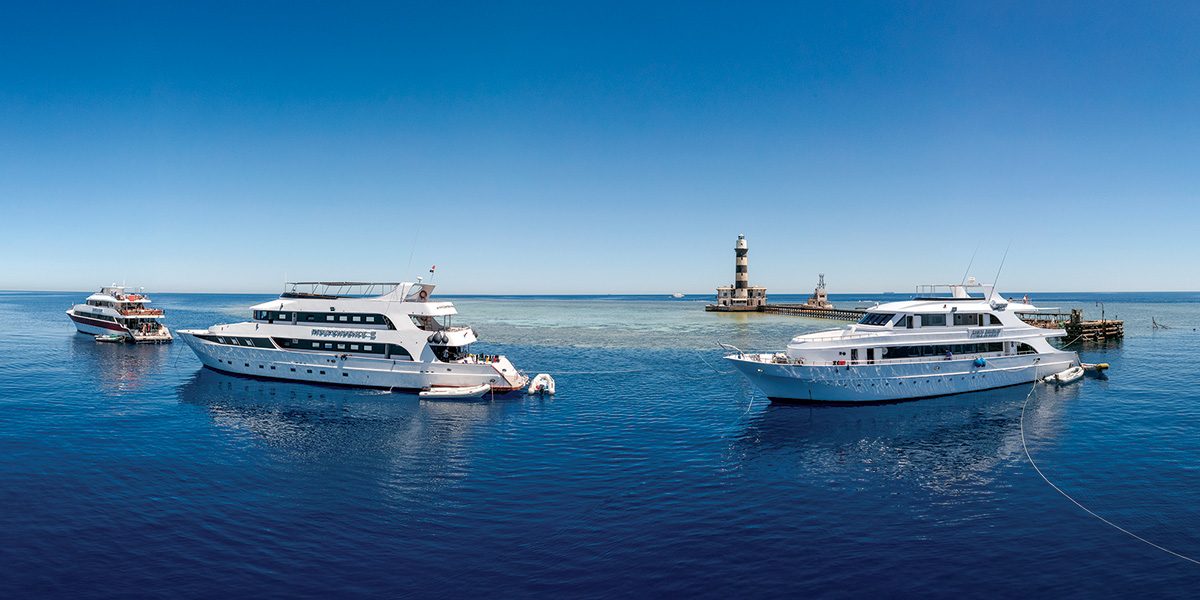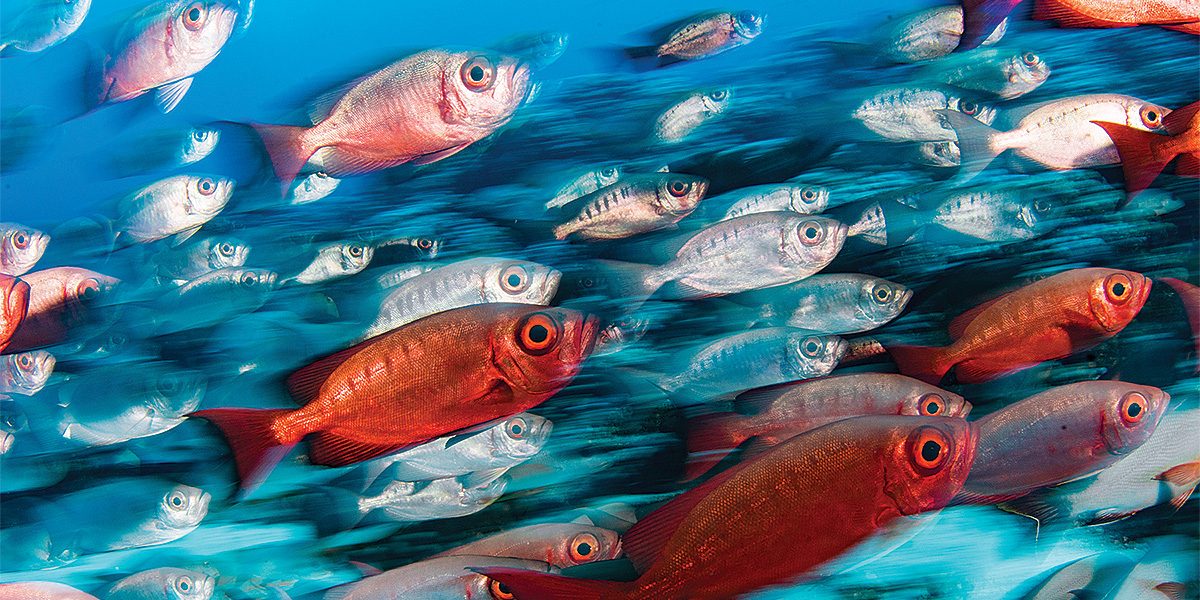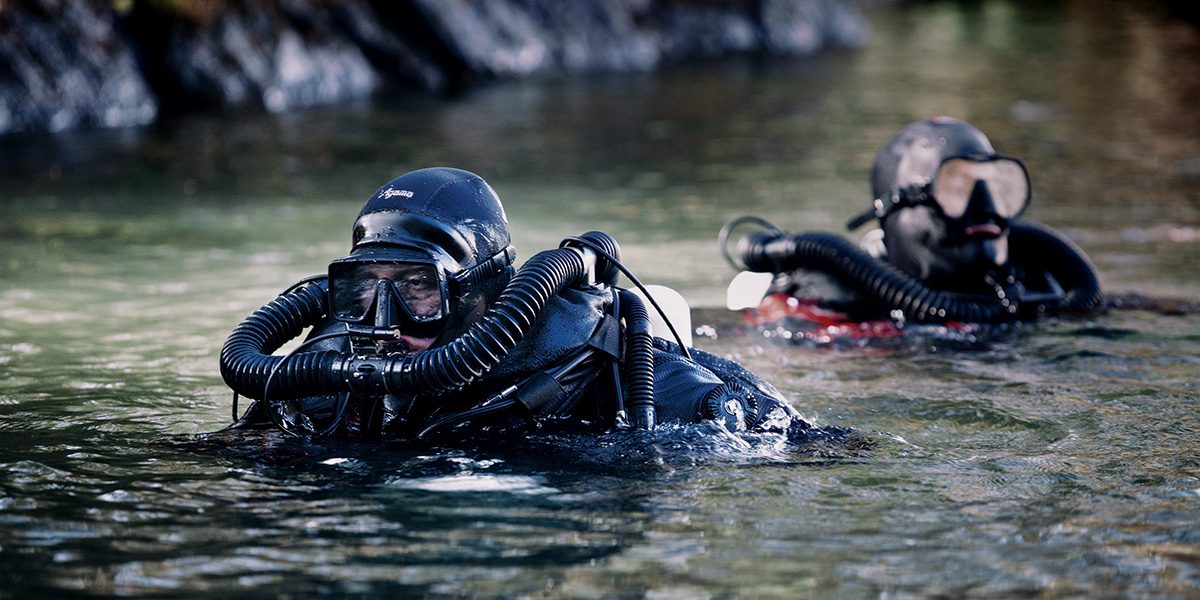We can do something simple to help our colleagues working in dive operations worldwide. If you have a dive trip booked in the next few months and are not certain the trip will happen, reschedule it instead of canceling. Book it for the same time next year or six months from now if you think travel will be less restrictive by then. Rescheduling is easy and gives you something to look forward to when we are able to venture out again — an awesome prepaid dive trip.
It’s easy to see trends in underwater photography by viewing social media photography forums, which can be great places to glean inspiration from new ideas and concepts. Trends aren’t always new ideas but can be recreations of proven classics done differently. It can sometimes be difficult, however, to figure out how the shooters made some of the interesting images. While we can see the skills used, only experience can truly teach us the techniques. Read to learn some of the latest trends in underwater photography.
The wars in the former Yugoslavia ended many years ago, but the consequences of the conflicts remain, with an alarming number of mines still scattered throughout the country. The resulting death toll is rising despite the efforts of authorities, nongovernmental organizations and individuals. Capt. Jiří Šejba, a police diver and member of the Department of Special Diving Activities and Training (DSDAT) based in Brno, Czech Republic, discusses the biggest pitfalls of each mission, the current state of training and when the area could be safe again.
We dive with a buddy, so why not work out with one too? Research shows that adding a social component to exercise frequently improves program adherence. Among the possible reasons for sticking with a program involving a partner may be the fun, accountability, motivation or preplanning to prioritize in an otherwise busy schedule. Adding a partner workout can also mix up your exercise routine. For these exercises all you need is a medicine ball and a willing partner.
In most cases, DCI has no specific and exclusive symptom and can be a diagnosis of exclusion. We first have to rule out all other possible causes, especially serious conditions that need other immediate intervention, before deciding to treat the diver with recompression in a hyperbaric chamber. Symptoms and clinical conditions can change in a matter of hours, demanding a reassessment of the possible diagnoses and recommended treatments. That’s why divers should always go to the nearest medical facility and not directly to a hyperbaric chamber.
Having previously photographed many of the Red Sea’s wide-ranging cosmopolitan species in the Pacific, we planned to concentrate our efforts on endemics (species confined to a single region by geographic isolation). Sergey V. Bogorodsky and John E. Randall report that the Red Sea is home to 1,120 coastal fish species. Of these, 165, or roughly 15 percent, live nowhere else and have been designated as endemics. Only the remote Hawaiian archipelago and Easter Island, isolated by distance from a regular flow of larval recruits, harbor a higher percentage of homegrown species.
DAN medical information specialists and researchers answer your dive medicine questions. In this issue: diving at altitude, hip fracture surgery, anticoagulant medications, aluminum oxide exposure, and acoustic neuromas.
The REEF Volunteer Fish Survey Project is the world’s largest database of marine-life sightings, containing more than 250,000 surveys, thanks to divers and snorkelers from all over the world. Scientists, policymakers and resource managers use REEF data for research and to make informed decisions, and divers can consult the database to learn what species have been reported at a given location. By engaging in this ocean citizen science initiative, each dive can be a fascinating and rewarding underwater scavenger hunt.
A passionate cave diver and scientist, Dawn Kernagis, Ph.D., has been involved in numerous exploration projects since the 1990s, including as a crew member in the NASA Extreme Environment Mission Operations (NEEMO) 21 underwater habitat mission in 2016. A recipient of the 2018 Undersea and Hyperbaric Medical Society’s Young Scientist Award and other distinctions, she oversees the Human Health, Resilience and Performance research team at the Institute for Human and Machine Cognition. Read about her studies on human performance optimization and risk mitigation for operators in extreme environments.
Some first-stage scuba regulators have a shared low-pressure hub. Purging the second-stage regulator to release pressure from all hoses before disassembling gear causes gas in the other hoses to move backward toward the first stage. The gas could carry debris from the other low-pressure hoses and possibly through the first-stage regulator into the hose being used to vent the system. Performing regular maintenance, checking your hoses and noting any difficulty in breathing or inflation during your predive check should prevent hose degeneration from causing an underwater incident.



